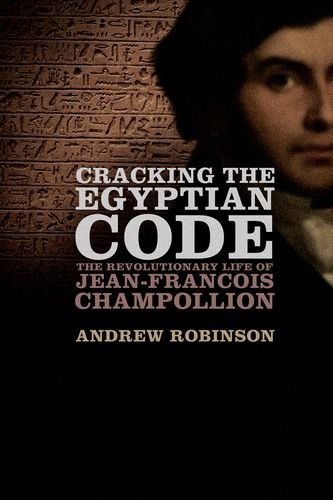


Cracking the Egyptian Code: The Revolutionary Life of Jean-Francois Champollion
K**K
Excellent history and beautifully written - shame it gets the hieroglyphics wrong
Great account of the blundering and academic bickering that took place in the "Golden Era" of Egyptian Hieroglyphics decipherment. Well researched and lots of examples and extracts provided.Reading the book is a great help in realising that the "experts" really have no clue about why certain hieroglyphics are used or what they mean. This is because they insisted on using Coptic which as even the British Museum admits is the wrong language.Once you switch to the correct language everything makes sense and the guesswork of Champollion can finally be put to rest as an interesting historical footnote. Check out the works of Wilson and Blackett and the forthcoming book on "Cymroglyphics" which show how easy hieroglyphics should be. It will be on Amazon soon and there is a free download of chapter one on the BritainsHiddenHistory website.Heddwch
G**A
Che il prodotto corrisponda alla descrizione
Saggio di grande interesse su colui che decifrò la stele di Rosetta: Jean François Champollion
R**Y
Five Stars
Excellent Read!!!
N**T
clearly written account
A slight quibble is that some passages (in my opinion) would be better left in the Original French. The book is well researched.
L**E
Good information but boring
The Keys of Egypt is a better book and a more interesting read. The author of Cracking the Code seems not to understand how this sort of thing works (decipherment), and that the reason he can't follow Champollion's steps is that he has inspirations, tests and idea, and either pursues it or discards it. The author also doesn't seem to realize how people of this level of brilliance are perceived by other. There is ample evidence that Champollion's brilliance was seen as a threat by more established men, and it wasn't because of Champollion's own behavior. Furthermore, we don't need to find an external reason (like his brother's interest) for Champollion's interest in Egypt. He just liked it. The author (following others) speculates that his mother wasn't his mother, which is nonsensical when he was named after her. There seems to be some error regarding her age, in that she was probably around 40 when Champollion was born and not 50, so that she was popping out his older siblings every year or two in her 20s and not her late 30s, which is much more likely. Finally, the author attributes his death to an unknown disease brought back from Egypt. Possible, but considering that Champollion had serious health problems from the age of 10 and did not die of a sudden new illness, that seems to be a bit of a cop-out. If the point of a biography is to give a sense of the person and the context in which they lived and worked, this book does not do a very good job.
Trustpilot
1 month ago
1 month ago